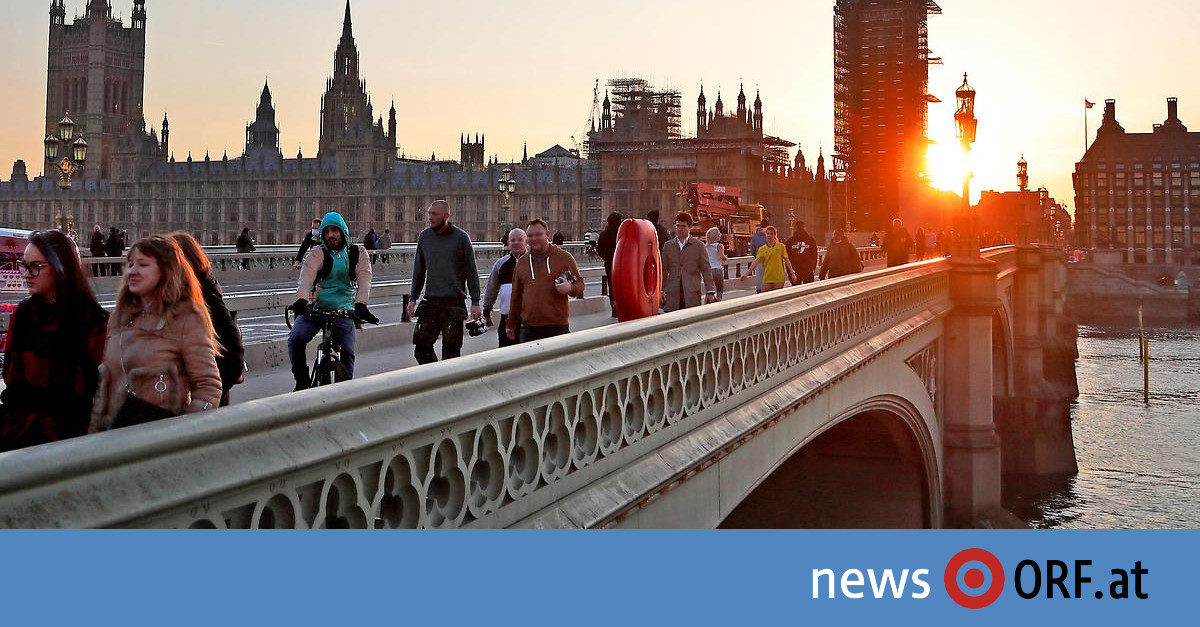According to the plan, all coronavirus measures should be lifted by June 21, at least in the greater British part of the country, England. Next opening move is on Monday. Residents of England are then allowed to meet again in closed rooms in groups of up to six people or two families.
In addition, restaurants and bars are allowed to reopen their interiors, and museums, cinemas and sports facilities could start operating again. Next steps in opening up are also pending in other parts of the UK. Although the responsibility for the health system rests with individual regional governments, it has so far been based on the British government’s approach.
‘Totally wrong’
Hancock confirmed on Sunday that the easing will be carried out regardless of the spread B.1.617.2. However, Hancock did not want to promise that all restrictions would fall as planned on June 21. The health minister told Sky News that the country is in a race between the virus and the vaccination campaign. But the government is confident that “the vaccine will win.” He told the BBC, however, that it was important to vaccinate as many people as possible.
Hancock vehemently protested the opposition’s allegations that the government responded with extreme hesitation to the danger posed by virus variant B.1.617.2 and that travel restrictions on India were imposed too late. It was “absolutely wrong” for Great Britain to act more quickly; On the contrary, strict travel restrictions were imposed on India even before the alternative was examined in detail.
The British government had placed Pakistan and Bangladesh on the Red List ahead of India, to which particularly stringent quarantine regulations apply. But there is now criticism from the opposition. Hancock declined to assume the decision was influenced by Prime Minister Boris Johnson’s planned trip in April to deal with post-Brexit trade ties. The visit was subsequently canceled due to the coronavirus situation in India.
About 1,300 cases are registered
Meanwhile, local outbreaks of variant B.1.617.2, which have triggered a massive wave of infections and deaths in the Asian subcontinent, are increasingly sounding alarm bells in the UK.
The well-known expert body SAGE (Scientific Advisory Group for Emergencies), which advises the government, fears the mutation could be up to 50 percent more contagious than the previously prevailing B.1.1.7 mutation in Great Britain.
So far, about 1,300 cases have been recorded in the UK – but the number has nearly tripled in a week. In particularly affected areas such as Bolton in northwest England and the Hackney region of London, mass testing is aimed at helping contain the spread of the disease.
An occurrence of 7 days in 24
The Minister of State in charge of the vaccination campaign, Nadim Al-Zahawi, told Sky News that he is also exploring ways in which vaccines can be used as effectively as possible. For example, the second vaccination doses can be offered or, in the regions, the vaccinations of younger age groups, whose role have not yet been resolved, can also be vaccinated.
Great Britain, with a population of about 67 million, currently has relatively few cases with a nationwide incidence of 7 days of about 24 new infections per 100,000 people within a week. So far, no increase in hospitalizations or deaths has been recorded in the affected areas. Therefore, there is hope that vaccinations will at least protect against dangerous diseases caused by the mutant pathogen.

“Alcohol buff. Troublemaker. Introvert. Student. Social media lover. Web ninja. Bacon fan. Reader.”






More Stories
The Body Shop files for bankruptcy in the UK
Kaspersky: All employees in the US must leave – business activities will be terminated
Resettlement in the United States and its Impact on U.S.-Focused Firms